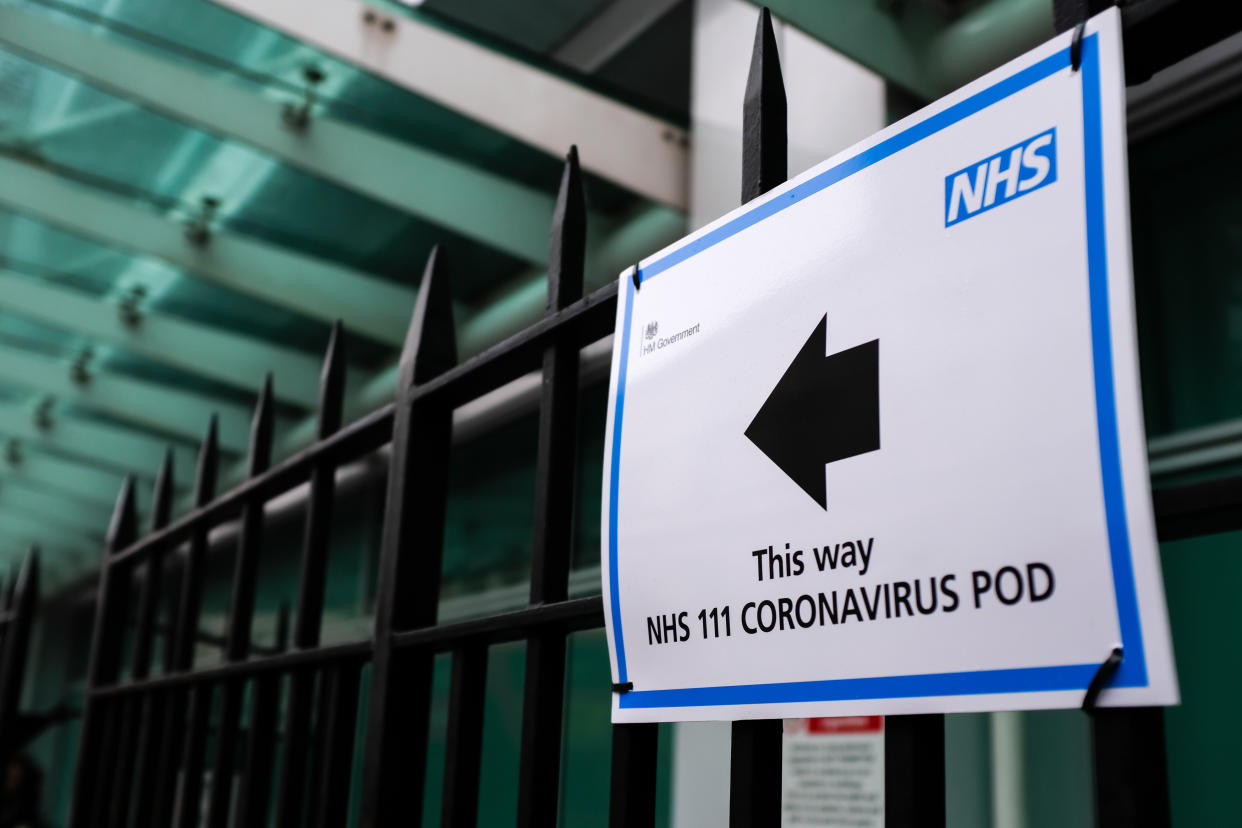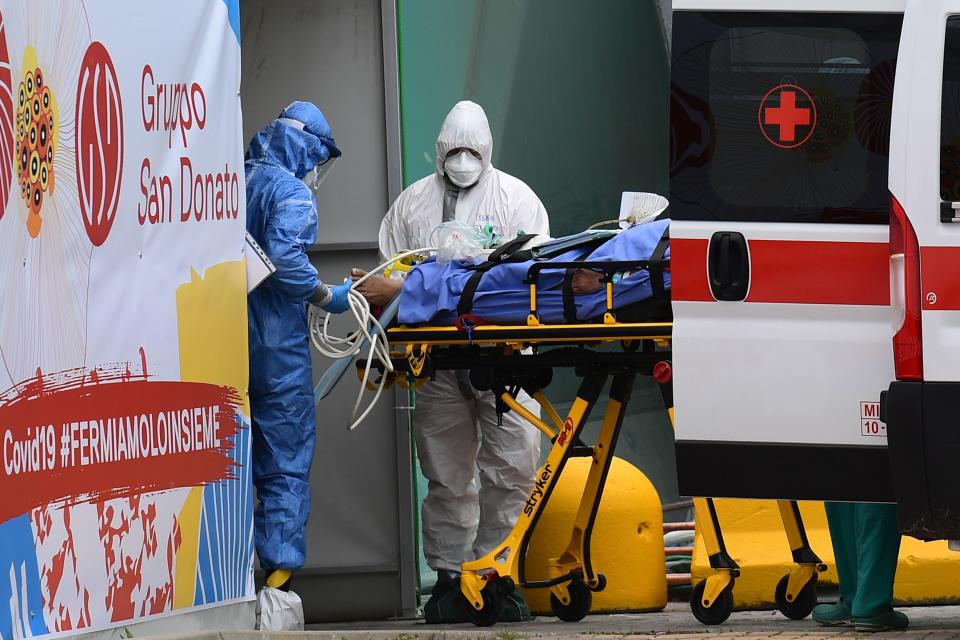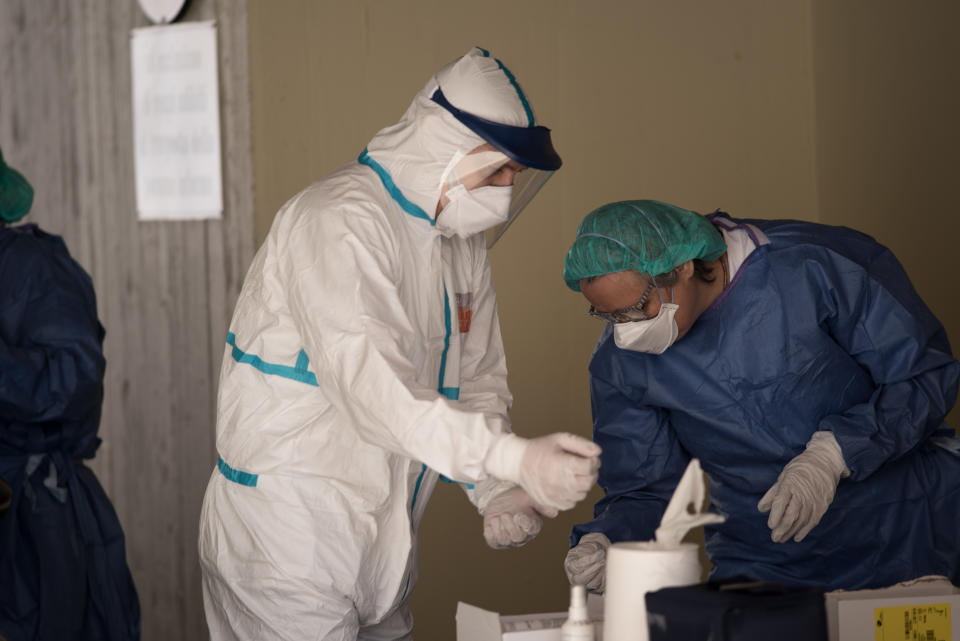'We're looking at Italy and we're worried': Doctor warns NHS may not be ready for coronavirus

Doctors have warned that the UK's coronavirus crisis could get as bad as Italy's, with hospitals nearing full capacity and in urgent need of beds, ventilators and protective equipment.
British Medical Association (BMA) spokesman and consultant Dr Tom Dolphin said medics are “deeply apprehensive” about whether intensive care units will be able to cope with a coming surge in cases of COVID-19, the disease caused by the virus.
Dolphin said hospitals are already in urgent need of ventilators, which will force doctors to make tough decisions about which patients to treat.
“We’re looking at Italy with a great deal of anxiety and trepidation because they’ve got a well-funded health service and they are really struggling,” he said.
He said the NHS was “not starting from a great base” in terms of its number of beds and after funding shortfalls in recent years.
Latest coronavirus news, updates and advice
Live: Follow all the latest updates from the UK and around the world
Fact-checker: The number of COVID-19 cases in your local area
Explained: Symptoms, latest advice and how it compares to the flu
Italy has suffered more COVID-19 deaths than any other country: 5,476 as of midday on Monday. It also has a rapidly growing number of confirmed cases, 59,138, second only to China, where the virus originated.
It has left millions of Italians under government-imposed curfew, a prospect Brits could also be facing in coming weeks as UK cases jump on a daily basis. The total number of confirmed UK cases currently stands at 5,748, while the death toll is 282.

Dolphin, who works at Imperial College London, said his own hospital was “struggling with supplies” of personal protective equipment (PPE), adding: “It’s happening everywhere.”
“Like any epidemic, there are hotspots. Some hospitals have had to transfer patients out to other intensive care units,” he told PA Media.
“We’re going to get to the point where we are really running out of capacity and that transfer ability is going to be difficult to do anyway because nowhere else will have anywhere either.
Read more: An Italian's guide to keeping healthy during a coronavirus lockdown
“We’re going to have limited resource, and rather than being able to offer it to everybody who needs it, we are probably going to have to prioritise between the people who are going to benefit from it as well.
“It won’t be on age and it never has been, it will be on chance of survival.”
On Monday, health secretary Matt Hancock admitted there have been “challenges” with the supply of PPE to frontline NHS staff.
Hancock said the armed forces were being drafted in to help distribute PPE supplies to the health service, amid reports that a number of medics are seriously ill from COVID-19.

It emerged on Sunday that a young nurse with no underlying health issues is critically ill in intensive care after contracting the virus, in a sobering warning that COVID-19 does not just affect the elderly.
Areema Nasreen, 36, described as "normally fit and healthy", is now on a ventilator at Walsall Manor Hospital in the West Midlands, where she has worked for 16 years.
Meanwhile, medics battling the outbreak said they feel like "lambs to the slaughter".
In an open letter to The Sunday Times, almost 4,000 NHS workers called on Boris Johnson to “protect the lives of the life-savers” and resolve the “unacceptable” shortage of PPE.
Read more: Doctor at UK hospital says they're being told not to wear protective clothing

Dr Rinesh Parmar, chair of the Doctors’ Association, said: “GPs tell us that they feel absolutely abandoned.
“We are all pleading with Boris Johnson that they really look into arranging the vital personal protection equipment that all of us need on the NHS front line.
“What our doctors are telling us is that although equipment is arriving, some of it is inadequate, some of it doesn’t meet the World Health Organization guidance.”
The British Association of Oral and Maxillofacial Surgeons reported that some of the most seriously ill UK patients include healthy ear, nose and throat specialists who ended up on life support after being infected by normal contact with patients.
NHS England said the army would “play its part” from this week, offering personnel to “help to manage and offload supplies in busy NHS settings” and distributing PPE supplies to the frontline.
“I am determined to ensure that the right kit gets to the right hospital, the right ambulance service, the right doctors’ surgery, right across the country,” said Hancock.
“There have been challenges and I can see that. We’re on it and trying to solve all the problems.”
Read more: Italy's death toll overtakes China's

There has been increased pressure on the supply chain of PPE both from the outbreak of COVID-19 and the related manufacturing slowdown, particularly in China, the NHS said.
Emily Lawson, chief commercial officer for the NHS, said: “We need massively increased, urgent volume of these supplies to the frontline in this exceptional set of circumstances.
“Working with our partners, we are now seeing much increased capacity, and a more responsive supply chain to help take us through the coronavirus outbreak. We are extremely grateful for the army’s support in doing so.”
Last week, a doctor at a major UK hospital said he was "terrified" about the lack of PPE and couldn’t bear the thought of giving his patients a disease that could cause them to die.
In a message read out on Monday by Jeremy Hunt at the health and social care select committee, a doctor said that they had been told “not to bother” with protective equipment, contradicting World Health Organization (WHO) guidelines.


